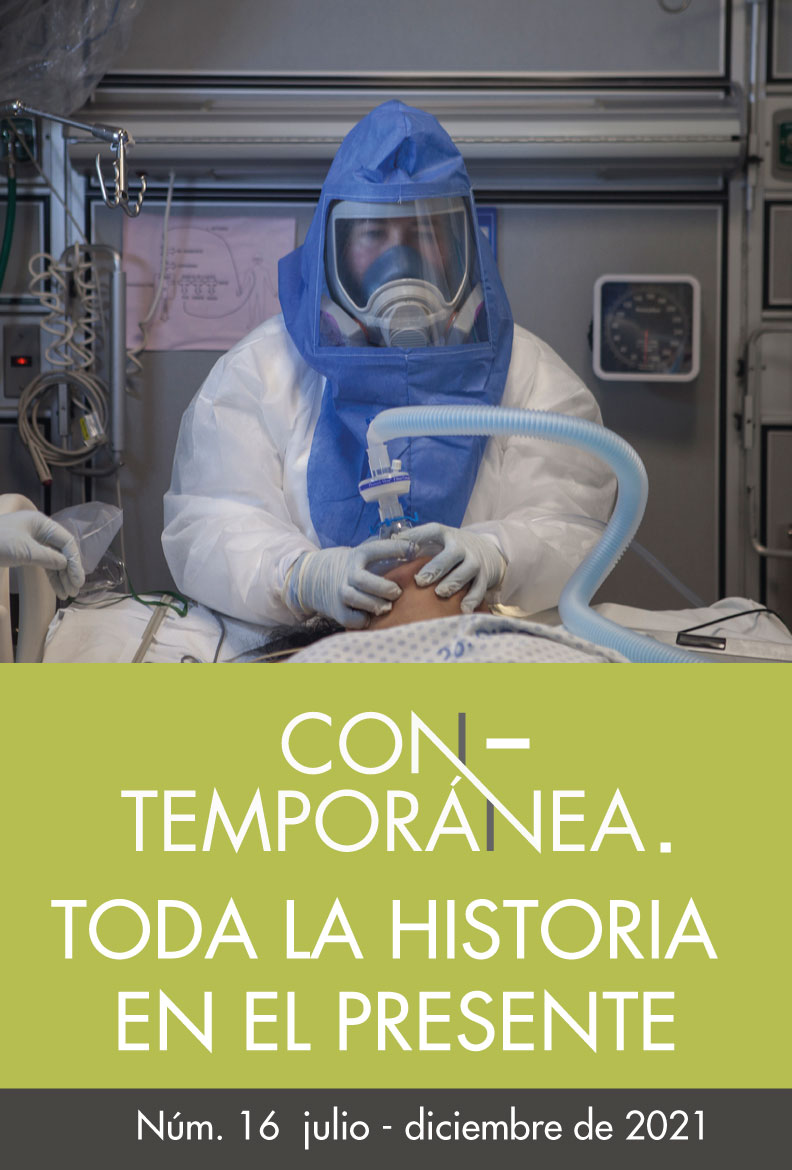Articulando historias: Hiroshima y Nagasaki en el escenario latinoamericano
Keywords:
Japanese immigrants, atomic bomb, Latin America, Japan, United States.Abstract
States Articulating Stories: Hiroshima and Nagasaki on the Latin American stage addresses the twentieth century as the most violent in history. In the context of the confrontation between the United States and Japan and the dropping of atomic bombs on Japanese cities, the essay will show some of the consequences that the bomb represented for the Japanese population and for Mexican citizens, (children of Japanese immigrants in Mexico) who witnessed the war in Japan. On the other hand, the essay will show the circumstances in which Japanese immigrant communities based on the mainland faced the consequences of the war.
Downloads
References
Akachi, Jesús, “Testimonio de Jesús Akachi”, Antropología. Revista Interdisciplinaria del INAH, año 1, núm. 2, 2017, pp. 18-21.
Daniels, Roger, Japanese Americans. From Relocation to Redress, Seattle, University of Washington Press, 1991.
Daniels, Roger, The Politics of Prejudice. The Anti-Japanese Movement in California and the Struggle for Japanese Exclusion, Berkeley, California University Press, 1977, pp. 65-78.
Dower, John, Embracing Defeat. Japan in the Wake of World War II, Nueva York, W.?W. Norton & Company, 1999, pp. 33-64.
Dower, John, Ways of Forgetting, Ways of Remembering. Japan in The Modern World, Nueva York, The New Press, 2012.
Foucault, M., Defender la sociedad. Curso en el College de France (1975-1979). México, FCE, 2006, pp. 217-237.
Gardiner, Harvey, Japanese and Peru 1873-1973, Albuquerque, University of New Mexico Press, 1975.
Gardiner, Harvey, Pawns in a Triangle of Hate, Seattle, University of Washington Press, 1981, pp. 61-80.
Gibney, Frank, The Japanese Remember the Pacific War: Letters to the Editor of Asahi Shimbun, Nueva York, Routledge, 2006, p. 204.
Hernández Galindo, Sergio, “Jesús Akachi: la vida y los aportes de un nisei a México”, Discover Nikkei Journal, 4 de octubre de 2016.
Hernández Galindo, Sergio, “Migración japonesa y guerra: Fernando Hiramuro, un hibakusha mexicano”, en Journal de Ciencias Sociales, año 3, núm. 4, Buenos Aires, 2015, pp. 61-73.
Hernández Galindo, Sergio, en Hibakusha Testomonio de Yasuaki Yamashita, México, FCE (Vientos del Pueblo), 2021.
Hernández Galindo, Sergio, La guerra contra los japoneses en México durante la II Guerra Mundial. Tsuru y Masao Imuro inmigrantes vigilados, México, Itaca, 2011, pp. 40-42.
Hobsbawm, E.?J., Historia del siglo XX, Buenos Aires, Crítica, 1994, p. 21.
Huntington, S., “Las civilizaciones en desacuerdo”, en Fin de siglo. Grandes pensadores hacen reflexiones sobre nuestro tiempo, prólogo por Bill Moyers, México, McGraw-Hill, 1996, p. 59.
Illich, Iván, “La sombra que arroja nuestro futuro”, en Fin de siglo. Grandes pensadores hacen reflexiones sobre nuestro tiempo, prólogo por Bill Moyers, México, McGraw-Hill, 1996, p. 71.
Ito, Jorge, “Testimonio de Jorge Ito”, Antropología. Revista Interdisciplinaria del INAH, año 1, núm. 2, 2017, p. 22.
Schaffer, Ronald, Wings of Judgment: American Bombing in World War II, Nueva York, Oxford University Press, 1985, p. 131.
Selden, Mark, “A forgotten Holocaust: US bombing strategy, the destruction of Japanese cities & the American way of war from World War II to Iraq”, The Asia-Pacific Journal, vol. 5, núm. 5, mayo 2 de 2007, p. 85.
Tanaka, Michiko, “De la evacuación en las montañas de Kyushu al retorno a Tokio bajo la ocupación estadounidense”, Antropología. Revista Interdisciplinaria del INAH, año 1, núm. 2, 2017, p. 60.
Tanaka, Yuki, “Indiscriminate bombing and the Enola Gay legacy”, The Asia-Pacific Journal, vol. 1, núm. 5, mayo 23 de 2003.



